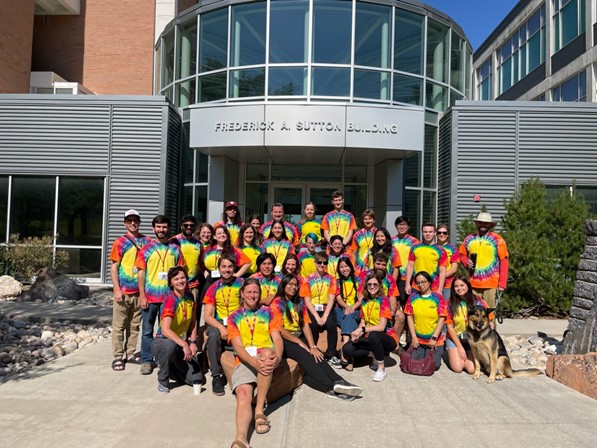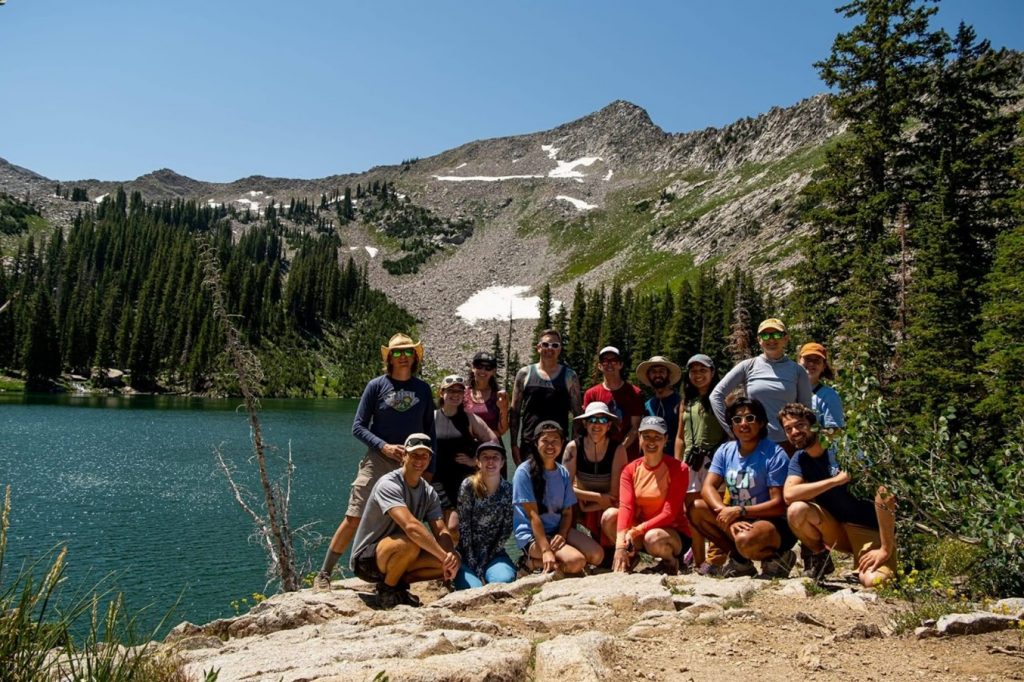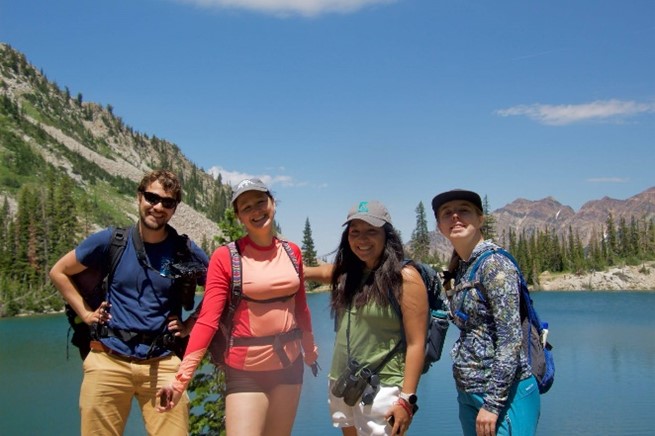Over the summer, I participated in the SPATIAL Short Course 2024 cohort in Salt Lake City, Utah. This course was as rigorous as it was rewarding and provided a unique opportunity to learn with 20 other students from institutions all over the world. Together, we joined Dr. Gabe Bowen and his team of graduate students and postdocs for two weeks of intensive training in stable isotope analysis within spatial systems. Our days were packed with lectures in the mornings and lab work in the afternoons. We also had the opportunity to learn from 10 visiting faculty members who gave lectures on their areas of research. We began with broad topics like water, carbon, and strontium isotope cycles and later explored specific applications of isotopes in fields such as paleoanthropology, marine systems, animal migrations, and forensics.
During the first week of lab work, we collaborated on a group project where we collected, processed, and presented data to the class. Our task was to formulate a research question, and my group decided to measure evaporation rates from city pools. This involved touring the city to collect samples from 10 public pools and their respective water sources. The analysis was challenging, but with feedback from our advisors, we successfully determined that surface area significantly influences evaporation rates.
In the second week, we were encouraged to pursue our own research interests while forming groups and developing research questions. Since I’m interested in using stable isotopes to trace the origin of tissues, I teamed up with classmates from Mexico and India to use strontium isotopes to determine the regional origin of human bones and teeth, with applications in forensics. We tested the assignR package on samples of known origin to see how accurately it could identify the most likely source of the tissues, and our results were promising.
One of my favorite activities was our 7-mile hike to Little Cottonwood Canyon. We were offered three options: a long hike, a short hike, or just participating in the BBQ on Sunday afternoon. As someone who loves the outdoors, I chose the long hike, and it did not disappoint! We encountered waterfalls, birds, alpine lakes, and bonded over snacks and fun photos. It was a refreshing break before diving into the second week.
Among the key activities we participated in was an informal conversation on data ownership and management, where we discussed different methods of securing and organizing our data for uploading to public repositories. We also had a career panel with professionals from NGOs, government agencies, and postdoctoral researchers who shared their experiences and perspectives on their careers. A particularly eye-opening exercise was the Mentor Map activity, where we discussed the different roles, mentors play in our academic and professional journeys. We were given a sheet with several circles, and in each circle, we wrote the names of individuals who support us in areas such as creating a safe space, providing emotional support, fostering professional development, serving as a role model, offering sponsorship, providing access to opportunities, providing substantive feedback, and more. As I filled in the names, I noticed that some were repeated-a common occurrence, but it also highlighted the need to expand my network. As a result, expanding my pool of mentors has become a key goal for this academic year.
Overall, the best part of this experience was the welcoming and supportive learning environment created by everyone involved. We were able to blend our skills, develop compelling projects, and learn from each other throughout the course. I would highly recommend this program to any student working with stable isotopes in spatial systems. This experience not only deepened my knowledge in the field but also sharpened my focus on building a strong support network that will be crucial as I continue my professional journey. I am grateful to the Gapenski Endowment and the FLMNH Department of Natural History for supporting this opportunity through the Travel Award.
Liz Hurtado is a graduate student pursuing a Ph.D. through the School of Natural Resources and Environment advised by Dr. Scott Robinson, Katharine Ordway Professor of Ecosystem Conservation and Eminent Scholar here at the Florida Museum.
The 2024 Summer Student Travel Awards are supported by the FLMNH Department of Natural History, including funds from the Louis C. and Jane Gapenski Endowed Fellowship and the B.J. and Eve Wilder Endowment. If you would like to help support this fund for future student awards, please go to:
Louis C. and Jane Gapenski Endowed Fellowship
B.J. and Eve Wilder Endowment


